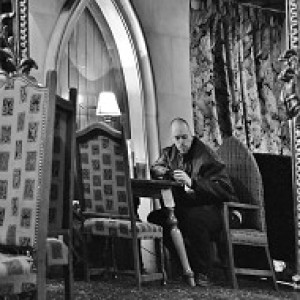All The Free Commons Of America
Today's the day when the US celebrates the signing of the Declaration of Independence in 1776 (or possibly the Fresh Prince defeating an alien invasion in 1996; history is a little foggy in this area), and consequently, nods are due to the men who signed that document and shaped the subsequent US Constitution. John Hancock, Sam Adams, Ben Franklin, Thomas Jefferson and George Washington are high on the list of those celebrated on Independence Day, as is Thomas Paine, the English writer who originally brought revolution into fashion for all the cool kids in America and France. But that Declaration and the Constitution had roots far deeper and older than any of its signatories or advocates; roots that tend to be sadly overlooked by history on both sides of the Atlantic.
You could start the story at almost any point in English history. Magna Carta? A document designed to benefit the nobility and landowners at the King's expense; hardly an earth-shattering improvement of affairs for the common serf. The 1381 Peasants' Revolt? Closer to the mark, since Wat Tyler's revolt provoked two key things: a mercantile class of peasants who learned how to amass wealth, and a tradition of radicalism among those who laboured to provide that wealth.
But things got really interesting when Parliament took up arms against the King at Edgehill in 1642. Of course, it wasn't the common worker they represented (even though many a poor bloke no doubt pinned his hopes on them); their interests were ultimately those of the merchants, the emerging middle class, against the old order of the landed gentry. When Cromwell seized power and declared himself Lord Protector, the dictatorship he put in place was one by the middle class, for the middle class. (It's always worth a chuckle to see how the Daily Mail lambasts Cromwell as some kind of proto-Communist revolutionary; the fact is, in his background, upbringing, moral and religious views, Cromwell himself would undoubtedly have been an avid Daily Mail reader himself given half the chance. In many ways, he was the 17th century's answer to Richard Littlejohn).
Old Ollie's English Republic was an intolerant, fundamentalist disaster, but it was vital to the development of the Western world in at least one key way: it provided a hitherto unparalleled platform for the words of John Lilburne - "Freeborn John" - the Parliamentarian officer and agitator who is a true, unsung hero of both England and the United States, if not the world as a whole. Lilburne was born of the English radical tradition, and the crux of his beliefs was that all human beings - regardless of class, gender, race or other distinguishing factors - had indisputable rights that no earthly government could overrule. It cannot possibly be emphasised enough how utterly insane that idea sounded to many people in the 17th century. Certainly, to those people who stood to lose status in society because of it, it was anathema. On the other hand, historical records suggest that the commons of England fiercely embraced Lilburne, and flocked to hear him speak in their hundreds. He was a war hero, he was eloquent in his words, and he wanted a world turned upside down.
In fact, Lilburne's drafted constitution for the English Republic - An Agreement Of The Free People Of England - bears such a startling resemblance in content to the US Constitution written nearly 150 years later that there can be no doubting the influence his ideas had on Thomas Paine, Ben Franklin, Thomas Jefferson and those other fine men in Philadelphia.
In his own time and country, his ideas weren't the biggest hit with Parliament, Cromwell, the Church or the King. In fact, Freeborn John pissed off just about everyone with an ounce of power. He fought a war for his ideas, delivered lectures in the streets for them, was flogged for them, and died in prison for them. Such are the lives of people who tell the truth.
I personally feel that there's mileage in the 4th of July being celebrated as Freeborn John day, certainly in the UK if not worldwide. How is it that a soldier from Sunderland whose words changed the course of history doesn't have towns, cities, or entire countries named in his honour, let alone one measly day?
Perhaps because Freeborn John didn't fight for any established power, but for the liberty of ordinary people. And no matter what age you live in, or how "free" you consider your country, that is always, always considered dangerous behaviour.
- 0
- 0
- Nikon D3100
- 1/50
- f/4.0
- 18mm
- 400

Comments
Sign in or get an account to comment.


